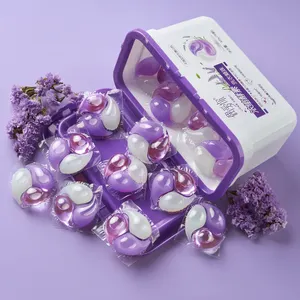
All categories
Featured selections
Trade Assurance
Buyer Central
Help Center
Get the app
Become a supplier

(14851 products available)















































Solid laundry soap is a popular choice for washing clothes and other fabrics. Many different kinds of laundry soap are available, each designed to clean different types of stains and fabrics. Some of the more common types of laundry soap are described below.
Regular Laundry Soap
Regular laundry soap is best for washing clothes that are not heavily stained. This kind of soap is milder and made with basic cleaning ingredients. It is gentle on fabrics but still tough on stains like dirt and sweat. Regular laundry soap works well for general laundry and is a good choice for clothes that need to be washed frequently.
Heavily Stained Laundry Soap
Laundry soap for heavily stained clothes contains extra cleaning powers. These soaps have more concentrated stain-fighting ingredients to remove tougher stains like grease, food spills, or ink marks. If clothes are repeatedly stained, using a soap made for heavy stains will help get them cleaner. Soaps for heavy stains may be a bit harsher on fabrics, but they are needed to remove stubborn stains.
Delicate Fabric Laundry Soap
Delicate fabrics like lace, silk, or wool need to be washed gently to avoid damage. A delicate fabric laundry soap is made with mild cleaning ingredients that won’t be rough on sensitive fibers. This kind of soap cleans delicate fabrics thoroughly without weakening the fabric or causing fading. It is safe for items like lingerie, blouses, and knitted sweaters that require gentle washing.
Odor Removal Laundry Soap
Some laundry soaps are specially formulated to remove odors, even after regular washing. These odor removal soaps have extra deodorizing ingredients that sink deep into fabrics to eliminate residual smells from sweat, mildew, or smoke. They clean the fabric and freshen it with a long-lasting scent. If clothes often smell bad, using odor removal laundry soap will help get rid of the odor.
It is important to ensure that the solid laundry soap is used and stored properly to ensure that the clothes are cleaned properly and that there are no safety hazards. Below are some of the key things to consider.
How to use
Using solid laundry soap is simple. First, sort the clothes according to the fabric type and color. Second, determine the amount of soap required by checking the soapy markings on the packaging. The amount of soap required depends on the weight of the load and how soiled the clothes are. Third, run the washing machine and add the solid soap. For pre-treatment, users can rub the soap on the stains before washing it and wash it for about five minutes at a one-minute cycle.
Product safety
When using solid laundry soap, follow the manufacturer's instructions to avoid any hazards. Keep the soap out of reach of children and pets. Store it in a cool, dry place away from direct sunlight. Make sure the storage container has a tight-fitting lid. This will help prevent moisture from getting inside the container. Always wear protective gear when handling the soap, especially if it's washing powder with harsh chemicals. This includes gloves and a face mask. Be aware of the symptoms that indicate an allergic reaction, such as difficulty breathing, swelling, and rashes. In case of an allergic reaction, seek medical attention immediately. Always wash your hands after handling laundry soap to avoid transferring any chemicals to your face or food. If you ingest the soap accidentally, seek medical attention immediately.
Because of its unique formulation, solid laundry soap can clean various types of fabrics. It can wash clothes and linens with just a bar of soap and a washboard. The following are the main functions of solid laundry soap:
Q1. Is bar soap better than liquid for laundry?
A1. Solid laundry soap has a much smaller environmental impact than liquid detergents, which come in plastic bottles. Those looking for an eco-friendly option will find that solid laundry soap fits the bill. Additionally, solid soap can be used for handwashing and is less likely to cause skin irritation than liquid detergents.
Q2. What are the disadvantages of laundry bar soap?
A2. While laundry bar soap can effectively treat stains and clean clothes, it may not be as convenient as traditional laundry detergents. Rinsing clothes thoroughly is essential to avoid soap residue, which can be time-consuming. Additionally, laundry bar soap may not be suitable for high-efficiency washing machines, limiting its use for some users.
Q3. Can I use laundry bar soap in my washing machine?
A3. In most cases, laundry bar soap can be used in washing machines. However, users must read the instructions carefully to avoid using the wrong type of soap, which can cause soap buildup and affect the machine's performance. In some instances, bar laundry soap may need to be pre-treated by grating and dissolving it in hot water before adding it to the washing machine.
Q4. What is the difference between body soap and laundry soap?
A4. Body soap is designed for use on the skin and often contains moisturizing and fragrant ingredients. Laundry soap is formulated with stronger cleaning agents to remove stains and odors from fabrics. While some laundry soaps may be suitable for handwashing, they lack the moisturizing properties of body soap.
Q5. How should solid laundry soap be stored?
A5. Solid laundry soap should be stored in a cool, dry place away from direct sunlight and moisture. Exposure to these elements can cause the soap to become brittle and lose its cleaning properties. Keeping the soap in a sealed container or wrapper can also help it last longer and maintain its fragrance.